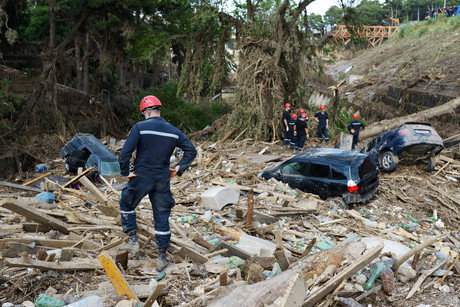Disaster resilience and securing food supplies

Natural disasters as well as civil unrest, cyber attacks, drought, sea-level rise and funding cuts can wreak havoc on a country’s food supply systems. A resilient food system is needed in order to ensure all people have safe and reliable access to food following both acute and longer-term crises.
A new study from the Johns Hopkins Bloomberg School of Public Health highlights characteristics of organisations involved in the food system that may lead them to be more prepared to respond to such disasters, and opportunities for local, state and federal organisations to improve resilience across the urban food system.
Researchers identified several factors that influence how resilient an organisation is during times of emergency. They found that the organisations able to recover more quickly had the following characteristics in common:
- Formal emergency planning
- Staff training
- Reliable staff attendance
- Redundancy of food supply, food suppliers, infrastructure, location and service providers
- Insurance
- Post-event learning after a disruptive event.
Organisations that were large, well-resourced and affiliated with national or government partners tended to display more of these characteristics.
Several critical areas for targeted intervention by local, state and federal governments were identified in the research, including creating opportunities for smaller, less-resourced organisations to share information and pool resources.
Further research is needed to add to an emerging understanding of the factors that contribute to resilience in order to help food system organisations, researchers and government officials identify vulnerabilities in their regional food systems and strategies to improve food system resilience in the face of ongoing and growing threats.

The research highlighting factors that influence how effectively food suppliers and distributors can prepare for and respond to disasters has been published in Journal of the Academy of Nutrition and Dietetics.
Large-scale solar for Cargill's oilseed processing plant in NSW
The Australian oilseed processor has launched the 2.58 MW onsite solar array at its...
SA Wine Recovery Program extended until 2027
The federal and South Australian Governments have announced the extension of the SA Wine Recovery...
Funky Food wants your imperfect surplus of fresh produce
The produce-rescue business wants to connect with farmers across Qld and northern NSW who have...










